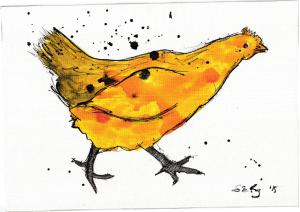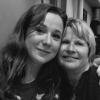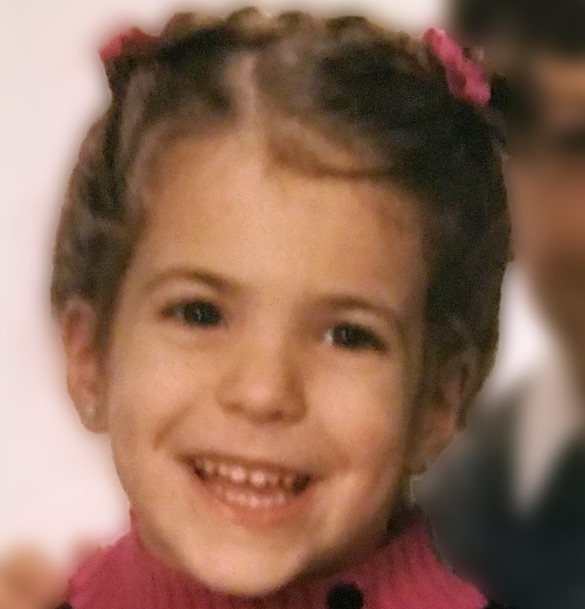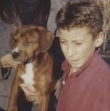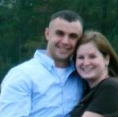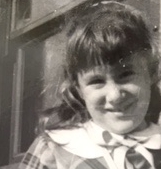It wasn’t a special occasion. Or maybe it was, because anytime we are together it’s special: an investment in our relationship, our therapist says. My carnivorous husband had made dinner reservations for a fancy vegetarian restaurant because he knows it’s one of my favorites. I was ready to cancel our plans, though, because it was a long drive. A big effort for a meal. And I was tired. It had been a long day of cleaning the gutters, sweeping leaves, and vacuuming followed by a hike. We could save money and stay in and drink Taylor Fladgate and play Settlers of Catan. But he convinced me we should go.
So I got dressed up. Or did I? I had leggings on. The kind normally paired with hiking shoes. But the leggings were dark gray, and I wore boots with heels. The boots made the leggings dressy, I’m pretty sure. I can’t remember if an iron curled my otherwise straight hair. There was definitely lipstick. And possibly eyeliner and mascara because it seems that my eyes and lashes are getting smaller or perhaps becoming less visible on my 44-year-old face. Or maybe just harder to see in the mirror, possibly because of my 44-year-old eyesight.
The parking lot at Fort Mason on the northern edge of San Francisco was deserted, aside from the other few cars that dotted the black expanse between the former military buildings and the Safeway on Marina Boulevard that used to be called one of the best places to scope out eligible singles.
We arrived a few minutes ahead of time, but were seated right away. There were only a handful of other humans having special occasion dinners on a Sunday. Moonbeams reflected on water in the harbor and lights twinkled in neighborhood windows and on the Golden Gate Bridge in the distance. Sailboats tethered to piers bobbed and their masts creaked in the evening breeze. The view out the wall of windows was hard to beat. Then again, the view across from me wasn’t so bad either.
A bottle of champagne in a silver bucket became our table companion. It tilted toward us in its icy bath, as if leaning to hear our quiet conversation. “We haven’t really talked about it,” my husband began. I knew what he was talking about before he said any more.
Not answering right way, I held the glass to my nose letting tiny chilled bubbles burst on my skin. The wine smelled of tart fruit and lemongrass. “I guess talking about going to Croatia next summer is sort of talking about it,” I said after a long exhale. “There’s something about being able to make plans that’s really appealing. We’ve just been on standby for what, two-and-a-half years?” Couples filled in the empty tables separating us from an unobstructed view. Maybe Sunday was a date night after all.
It was two-and-a-half years earlier, after six months of reluctance, that my husband agreed to have a baby with me. We already had four kids — two were mine and two were his — but one of my boys, my first born, my baseball-loving eleven-year-old son died after his sixth open-heart surgery. It was followed by a yearning more powerful than the need to breathe after surfacing from a dive or the need to push during a contraction or the need to nurse my babies when my breasts were heavy with milk. The need to create life merged with my grief. I was a bird in a chaotic murmuration — twisting and turning and erratic, yet determined; the back and forth of grief and desire, the instinct to birth in death’s aftermath, the instinct to grow a baby and to keep it alive with my body.
My husband held my gaze for a moment, then looked down at his menu again. Golden light fell from the overhead bulbs, giving his brown curls soft highlights. I could tell he was thinking about his dinner and also about the implications of what I was saying. When our waitress came, she topped up our flutes before placing our order with the kitchen.
“Are you saying you’re done trying?” He reached for my hand. “And it’s okay if you are. I support whatever you want to do because it’s your body.”
It felt like we’d tried everything — four rounds of artificial insemination led to a pregnancy, miscarriage, and a surgery to remove the dead embryo. Months of no sugar, no caffeine, no alcohol, then on to IVF. There were nightly hormone suppositories and injections, an egg retrieval, embryo biopsy, a failed transfer, more injections, another egg retrieval, more embryo biopsies. Finally a promising pregnancy with a chromosomally normal embryo. But at eight weeks, that promising pregnancy also died. I blamed my aging uterus.
I felt worn out and fed up. Even though there remained one last promising embryo in a freezer somewhere, I wasn’t sure I could endure another round of hormonal highs and disappointing and lousy lows. Doctors used words like devastating when the baby had died inside of me, but I reserve that word to describe the loss of my blond-haired, blue-eyed Tabasco-loving sixth-grader.
A few days after the surgery, I flew to Buffalo to clean out my mom’s house. She had come to live with us a few months earlier, her multiple sclerosis making her two-story duplex too dangerous a place for her. Too many stairs with the bathroom on the top floor and the washer and dryer in the basement. Too much time by herself. Too many miles between her and her family. I’d been wanting to clean out her home for a few months, but there was never a break in appointments. Always one more ultrasound. One more blood test. A few more shots of this and that. But I was freed up to make travel plans. In a weekend, a girlfriend and I emptied her one-bedroom apartment of nearly everything.
As I sat in the rocker with boxes stacked high all around and assessed the items that remained on the to-do list, it felt like I had made more decisions in the previous three days than I had in the previous months or possibly in the three years since Riley died. Pack this for California, store this in the attic. That’s trash. This is for the thrift shop. I had bought tickets, organized transportation to the airport, rented a car. I had secured price quotes from moving companies, worked with a property manager, sorted and sifted a lifetime of things. To most people, I imagine my list of accomplishments sounds mundane. For me, dragged and weighted by grief, showering had been an accomplishment. Grocery shopping, driving carpool, saying hello to acquaintances and cashiers, those were monumental steps in the tunnel of darkness in which I lived. But in Buffalo, I made decision after decision. I heard my therapist’s voice in my head: You’re capable of more than you think.
Even if I was capable of more than I thought, I wasn’t capable of creating life after death to fill that urge that felt like thirst, hunger, passion, breath. It wasn’t a situation in which I could study harder and have a better outcome.
As I took in all of the decisions I had made in my mom’s house in that short period of time, it struck me that I did have control of one thing. I couldn’t control the failures, but I could decide to stop putting myself in a position where failure was a possibility. I could decide not to have a baby. It was confusing to even entertain the thought. It wasn’t the outcome I wanted, but there was something alluring about taking control back from the universe. With that realization came the realization that stopping meant my husband and I could make plans. We could travel. For the last couple of years, we hadn’t been able to plan for anything because it was always: In six months, I’ll be this pregnant. Or: Next year, we’ll have a three-month-old baby.
When I got back from Buffalo, I started thinking about where we could go. Leaning against the kitchen counter while waiting for the kettle to boil one morning after the kids went to school, I said, “We could go to Croatia next summer.” In the summer, while our kids were with their other parents, we had space for those kinds of adventures. With curiosity in his eyes, my husband fell into my fantasy, both of us ignoring what a that kind of fantasy really meant.
When our meals arrived, my limbs were warm from alcohol, my posture softened. “Since I stopped taking all of the hormones, I feel more level — emotionally. I know you can’t see it, but the grating and intensity of grief feels more, I don’t know, even,” I said, my words feeling syrupy. “I can’t say better because better isn’t a possibility after losing Riley. But less chaotic, I guess. The idea of stopping feels freeing.” I reached over and ran my palm against his trim beard.
My husband, who initially had been reluctant to have a baby, was all in. He too had envisioned a healthy, fantasy baby mixed in with our Brady Bunch blended family. His expression told me he was torn over hearing me reverse from that plan. We forked food into our faces and held hands under the table. We talked about my mom and renting her house and the dog and the logistics of our daily lives. Still, the monumental question hovered.
After a while I told him about a conversation I’d had with my friend in Buffalo as I had started to form the idea of giving up. She had told me about other friends who conceived as soon as they’d stopped trying. She wondered if hearing their successes would give me hope. But it sounded like circular logic to me. If I need to let go of the idea, then I couldn’t be buoyed by their stories. Because if in the back of my mind, I’m still held out hope, then I hadn't really let it go.
“What if we just take a break?,” he said. “It doesn’t have to be now or never. We could just decide to do nothing for now, then think about it again in six months. That’s a choice, too.”
He was right. It didn’t have to be binary. On or off. We could step back and make plans and leave the frozen embryo alone. Our waitress took away our champagne companion. It was quiet for a while, me imagining the dreaded fertility clinic, where hope is for sale and the price is your sanity.
“Putting it on hold is a choice,” I agreed. “But for now, we’re done. I need to let it go. Really let go and make plans, okay? I need to move out of limbo for a while.” He nodded in agreement. For the first time, I heard voices around us. The restaurant was full, people talked and drank and laughed around us.
Almost immediately, an opportunity presented itself: a trip to Vietnam in the spring with a group that sponsors service trips to orphanages for bereaved mothers — mothers whose children have died volunteering with children whose parents have died. I said yes. Travel with purpose. In the future. Not to Croatia, not yet, but an opportunity I’d previously turned down because of….
That night, I told my husband I wanted to fill the hot tub. We had drained it when we first started trying to conceive because doctors said to avoid hot water. It felt like our talk at the restaurant had shifted the trajectory of our lives. That weekend, we opened the lid. It was moldy and a mixture of rainwater and grime stagnated at the bottom. My husband twisted the drain cap and gravity pulled the useless water to the earth. Then I wiped the hallowed shell gingerly with a soft cloth.
Welcome to the eleventh issue of Six Hens.
